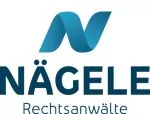On March 23, 2020, the Government's package of measures in connection with the economic consequences of the COVID-19 pandemic, which has already been approved by the Parliament of Liechtenstein in an urgent procedure, will come into force. The goal of the legislative changes is to secure employment and mitigate the economic consequences of the pandemic.
Below we have summarised the most important measures for you:
Default in payment guarantee for loans securing liquidity:
Since many companies are facing liquidity shortages due to lost sales in connection with the COVID-19 pandemic, they have to secure their liquidity and economic existence through emergency loans. Since loans are often only granted against collateral, the Principality of Liechtenstein grants a default in payment guarantee in favour of the National Bank of Liechtenstein with a total volume of CHF 25'000'000.
The hurdles for companies to make use of the default in payment guarantee are relatively low. Companies domiciled in the Principality of Liechtenstein are eligible if they have a business licence and have carried out business activities in Liechtenstein in the last financial year (Art. 3 para. 1 Deficiency Guarantee Act). In addition, it must be credibly demonstrated how the business is kept running by the means of the loan and how the interest payment and repayment are planned. Exceptions are companies which have been declared bankrupt within the last 3 years or which have had their application for bankruptcy dismissed with final and absolute effect due to lack of cost-covering assets within the last 3 years (Art. 3 para. 2 Deficiency Guarantee Act).
The amount of the guarantee is up to 20% of the total wage bill for the last financial year, up to a maximum of CHF 300'000. In exceptional cases, this maximum amount can be even doubled. The application must be submitted in writing to the Office of Economics (AVW). This measure is provisionally valid until June 30, 2020.
Possibility of Short-Time-Working:
Up to now, the Principality of Liechtenstein has not had a legal right to payment of compensation for short-time-working in the event of a pandemic and the associated official restrictions. This possibility was created with the adoption of the regulation on payment of short-time-working compensation (see blog post on short-time-work).
In order to ensure a smooth payment, the Liechtenstein Unemployment-Insurance-Fund is provided with CHF 100'000'000 by the government.
Direct aid for companies:
Companies which have been closed by administrative order may submit an application for an operating expenses government grant. The only condition is that short-time-working compensation has already been granted. The amount of the operating subsidy is 20% of the creditable loss of earnings. Together with the short-time-working compensation this results in a compensation of up to 80% of the creditable loss of earnings.
Small or micro enterprises (within the meaning of Art. 1064 para. 1a PGR) that are not entitled to receive compensation for short-time-working but are affected by the loss of work and associated economic problems will receive a state subsidy of up to CHF 4'000 per enterprise and month upon application. The subsidy does not have to be repaid.
For institutions that cannot benefit from the above-mentioned aid measures, such as cultural or sports institutions, the government is considering hardship contributions, which are still being drafted. The same applies to the partial reimbursement of costs for events prohibited by the authorities.
Additional measures:
According to Art. 80 of the VAT Act, companies with liquidity shortage have the possibility to apply for payment relief. These include the extension of the payment deadline and payment by instalments. In this context, it is also being considered to reduce or eliminate default interest on outstanding tax payments. However, a decision on this is still pending.
With regard to social security contributions (AHV/IV/FAK), Art. 32 AHVV allows for contributions to be adjusted in the context of reduced wage totals due to the COVID-19 pandemic. In addition, a deferment of payment can be requested if the contributor (employer) agrees to payment in instalments, pays the first instalment immediately and there is a reasonable prospect of payment of the other instalments and future contributions.
Originally published Naegele, May 2020
The content of this article is intended to provide a general guide to the subject matter. Specialist advice should be sought about your specific circumstances.

